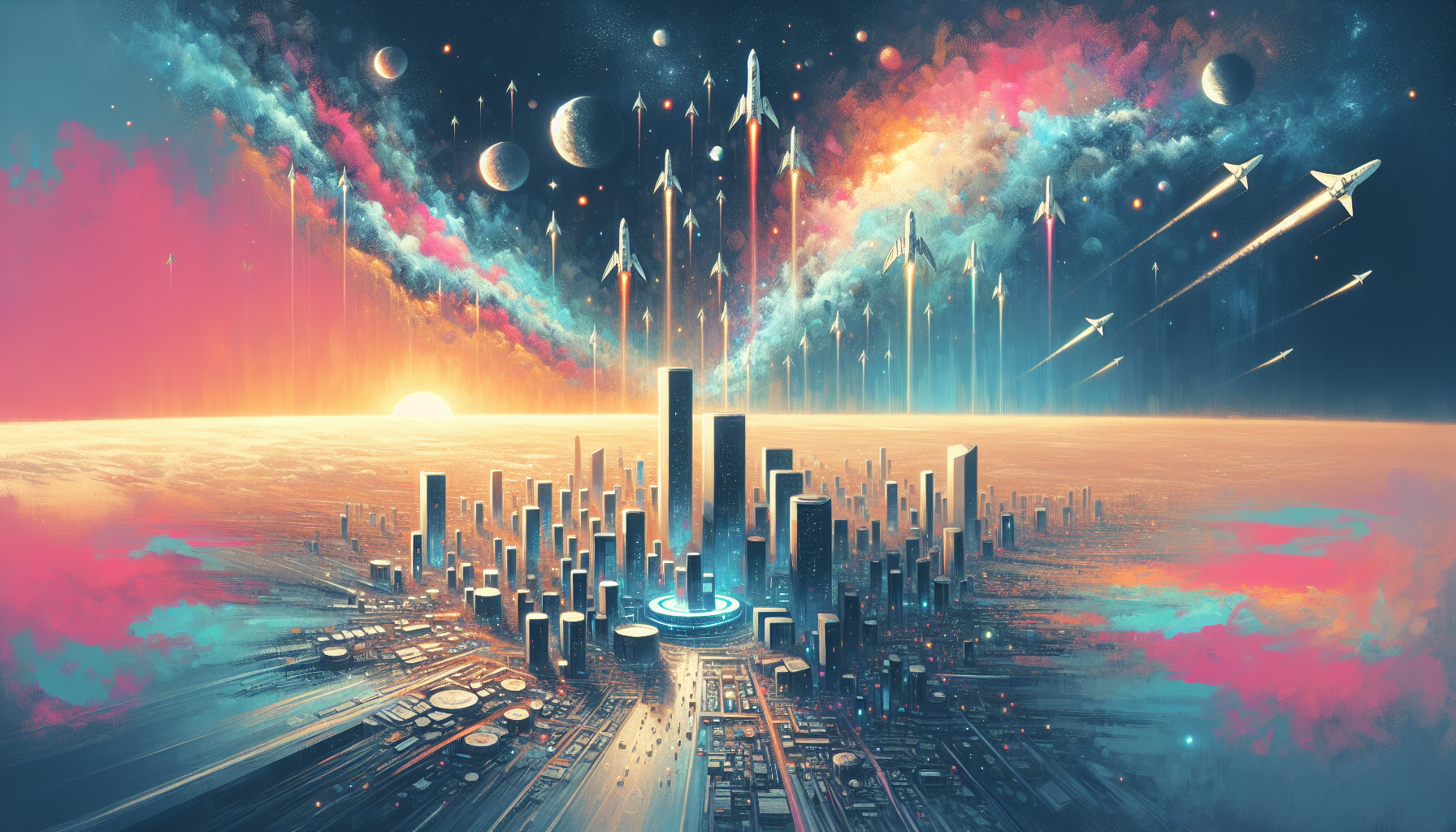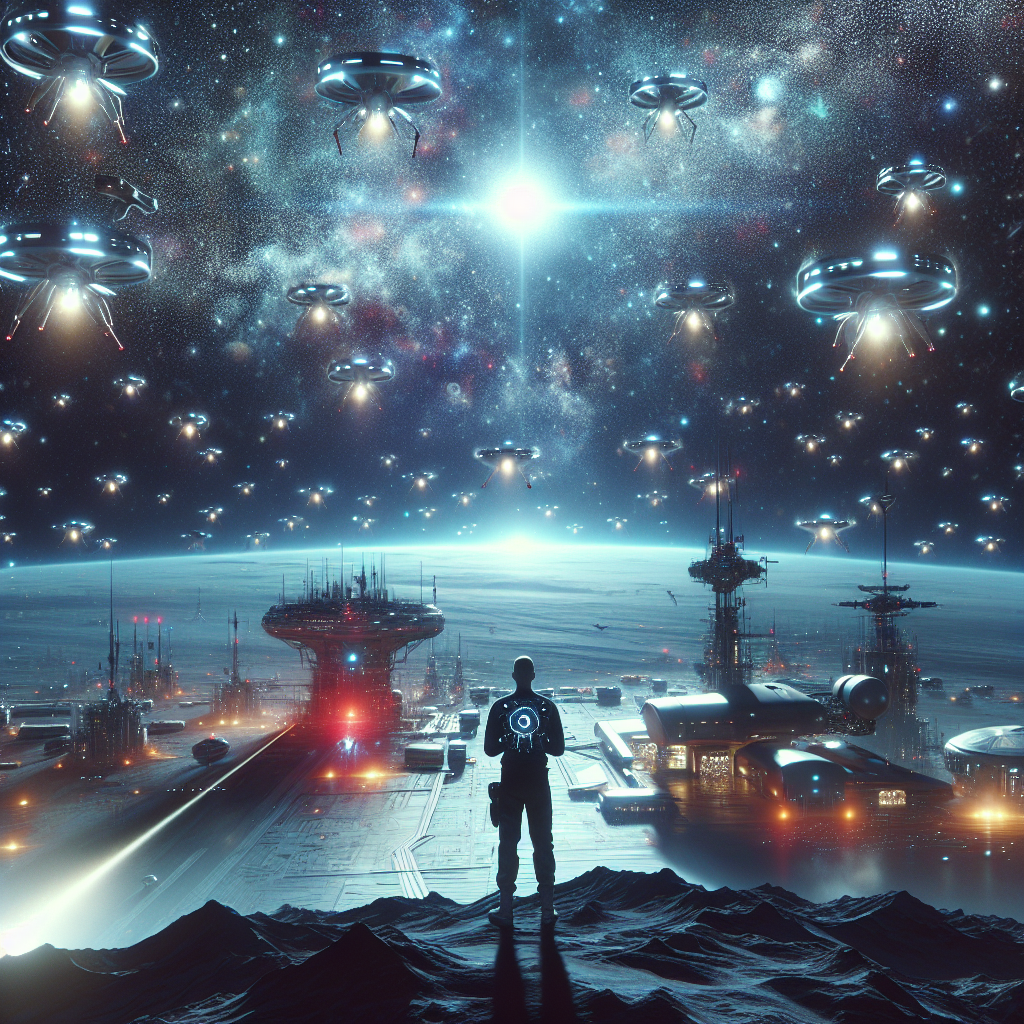The vastness of space presents monumental challenges for human colonization. However, the advent of autonomous swarms and advancements in artificial intelligence (AI) offer a promising pathway towards overcoming these obstacles. Imagine legions of tiny robots, working collaboratively and intelligently, constructing habitats, mining asteroids, and even building ambitious megastructures like Dyson spheres. This is the potential of swarm robotics applied to space exploration and settlement.

ly, constructing habitats, mining asteroids, and even building ambitious megastructures like Dyson spheres. This is the potential of swarm robotics applied to space exploration and settlement.
The Role of AI in Swarm Robotics
These swarms aren’t simply collections of robots; they’re coordinated entities driven by sophisticated AI. Each robot possesses a degree of autonomy, yet they operate as a unified whole, responding dynamically to changing environments and unforeseen challenges. This distributed intelligence allows for resilience and adaptability unmatched by human-controlled missions. Consequently, complex tasks become achievable, even in the harsh conditions of space.
In-Situ Resource Utilization (ISRU)
In-situ resource utilization is crucial for sustainable space colonization. Instead of transporting everything from Earth, which is prohibitively expensive, autonomous swarms can extract resources directly from asteroids and other celestial bodies. For example, they can mine water ice for fuel and life support, or extract valuable metals for construction. This drastically reduces reliance on Earth-based supplies.
Asteroid Mining and Self-Replication
Asteroid mining is a cornerstone of this vision. Moreover, the concept of self-replication – where robots can build copies of themselves using mined materials – amplifies the potential. This exponential growth in robotic workforce could transform ambitious projects from science fiction to reality. However, the ethical implications of self-replicating machines require careful consideration.
Space Construction and Megastructures
With a vast army of robotic workers, the construction of large-scale space infrastructure becomes feasible. Space elevators, once relegated to the realm of fantasy, could become a reality, offering efficient and cost-effective transportation between Earth and space. Furthermore, the construction of Dyson spheres, hypothetical megastructures designed to harness the energy of a star, enters the realm of possibility, albeit a very distant one. 🚀
The Singularity and Space Colonization
The convergence of these technologies points towards a potential singularity – a hypothetical point where technological growth becomes uncontrollable and irreversible, resulting in unforeseeable changes to human civilization. In essence, the development of advanced AI and self-replicating robots in space could accelerate this singularity. This raises significant questions about the future of humanity and its relationship with technology.
Ethical Considerations and Challenges
The prospect of space colonization fueled by autonomous swarms and AI is exciting, but it’s essential to acknowledge the ethical challenges. Concerns about the unintended consequences of advanced AI, the potential for robotic conflict, and the long-term sustainability of self-replicating systems require careful consideration. Ultimately, responsible development and rigorous safety protocols are paramount.
The journey to a future where autonomous swarms reshape space exploration and colonization is long and complex. Nevertheless, the potential rewards are immense, promising a future where humanity expands beyond Earth and establishes a sustainable presence among the stars. ✨
#AutonomousSwarms #SwarmRobotics #SpaceConstruction #InSituResourceUtilization #SpaceElevators #DysonSpheres #ArtificialIntelligence #SelfReplication #AsteroidMining #Singularity #SpaceColonization #SpaceExploration #RoboticsTechnology #AIinSpace #FutureofSpace #Megastructures #SpaceTravel #DeepSpaceExploration #TechnologicalSingularity #EthicalAI #SpaceMining #ResourceExtraction #SustainableSpace #SpaceSettlement #OffWorldColonization #FutureofHumanity #ScientificAdvancements #SpaceInnovation #RoboticsEngineering #AIethics
“`
